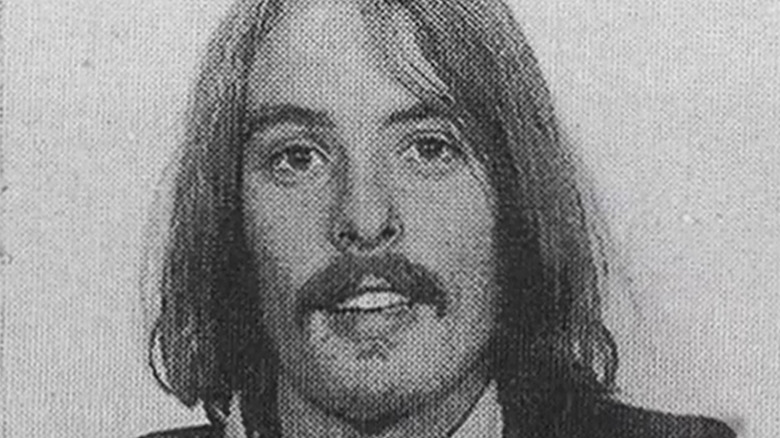This Was Serial Killer Richard Chase's Motive
The motives of many serial killers have yet to be uncovered. This isn't surprising considering the study of their minds only began in the 1970s with the work of FBI investigator Robert Ressler, who coined the term "serial killer," per NPR. Since then, experts have pored over the lives of the most infamous killers and tried to piece together the root causes of their actions. For example, Ted Bundy's murderous urges have been linked to his need for power and control, while his necrophilia is believed by some to be rooted in his desire for intimacy.
For others, the motivation is disturbingly clear. Richard Chase earned the nickname "The Vampire of Sacramento" for his chilling activities after the murder of his 6 victims: he drank their blood and ate their internal organs. According to Murderpedia, his unsettling behavior was driven by a delusion that Nazis were targeting him by poisoning his food. In this far-out dark fantasy, the poison was intended to turn his blood into powder.
Chase experienced mental health issues
It's not uncommon for serial killers to have trauma and mental health issues, and Chase certainly did not have an easy life. Per Murderpedia, he was abused by his father at a young age. Over the years, many troubling habits, such as the torture of animals and drug use, surfaced. Chase was also institutionalized on multiple occasions, where doctors prescribed him medication intended to curb his disturbing behavior.
Despite the efforts of medical professionals, Chase's mental state continued on a downward spiral. He lost his desire to care for his personal hygiene and instead focused his energy on unhealthy fixations on firearms and the Hillside Strangler (later revealed to be cousins Kenneth Bianchi and Angelo Buono Jr. acting together). Chase's delusions also appeared to have a firm grip on his psyche, as he believed that Bianchi and Buono Jr. were the target of the same Nazi conspiracy he was convinced was wreaking havoc on his life.
Richard Chase might not have been rehabilitated before he lost connection with reality, but the study of today's killers shows promise for achieving this goal. Although Scientific American noted that not all serial killers experience mental illness, for cases like Chase, understanding their minds will undoubtedly help prevent people like him from taking more lives.

